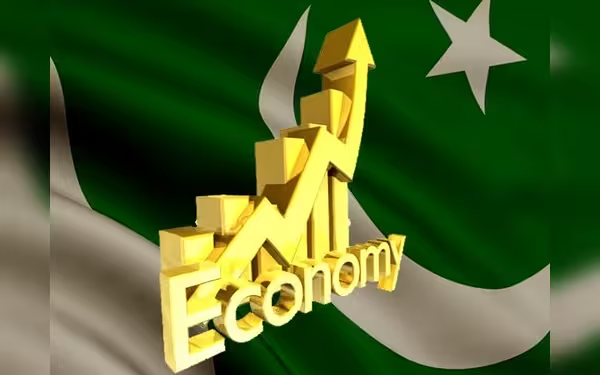Saturday, November 16, 2024 07:24 PM
Economic Freedom Crisis in Pakistan
- Pakistan ranks 147th in economic freedom globally.
- Weak property rights hinder investment and growth.
- Bureaucratic hurdles stifle business and job opportunities.
 Image Credits: tribune.com.pk
Image Credits: tribune.com.pkPakistan ranks 147th in economic freedom, facing challenges in property rights, government integrity, and business regulations.
In recent years, the concept of economic freedom has gained significant attention worldwide. Economic freedom refers to the ability of individuals to control their own economic resources, make their own choices, and engage in voluntary transactions. It is a crucial factor that influences a country's overall prosperity and development. Unfortunately, Pakistan has been struggling in this area, as highlighted by its ranking of 147th out of 184 countries in the 2023 Heritage Index of Economic Freedom. This ranking places Pakistan in the category of a "repressed" economy, with a score of 49.5.
The factors contributing to this low score are numerous and complex. Key elements such as property rights, government integrity, and judicial effectiveness play a vital role in determining a nation's economic freedom. In Pakistan, issues like weak property rights and a lack of government integrity hinder individuals and businesses from operating freely. When people do not feel secure in their ownership of property, they are less likely to invest in their businesses or take risks that could lead to economic growth.
Moreover, the tax burden and government spending in Pakistan are significant concerns. High taxes can discourage entrepreneurship and innovation, while excessive government spending can lead to inefficiencies and corruption. Fiscal health is another critical aspect; if a government is not managing its finances well, it can lead to instability and uncertainty in the economy.
Business freedom and labor freedom are also essential components of economic freedom. In Pakistan, bureaucratic hurdles and restrictive labor laws can stifle the growth of businesses and limit job opportunities for individuals. When businesses face numerous regulations and red tape, they may struggle to thrive, which ultimately affects the economy as a whole.
Furthermore, monetary freedom, trade freedom, investment freedom, and financial freedom are crucial for fostering a healthy economic environment. In Pakistan, challenges in these areas can create barriers to entry for foreign investors and limit the potential for economic expansion.
The lack of economic freedom in Pakistan is a multifaceted issue that requires urgent attention. Addressing these challenges is not just about improving rankings; it is about creating a more prosperous future for all citizens. By enhancing property rights, ensuring government integrity, and promoting business and labor freedoms, Pakistan can pave the way for a more vibrant economy. Ultimately, fostering economic freedom will not only benefit individuals and businesses but will also contribute to the overall development and stability of the nation.













